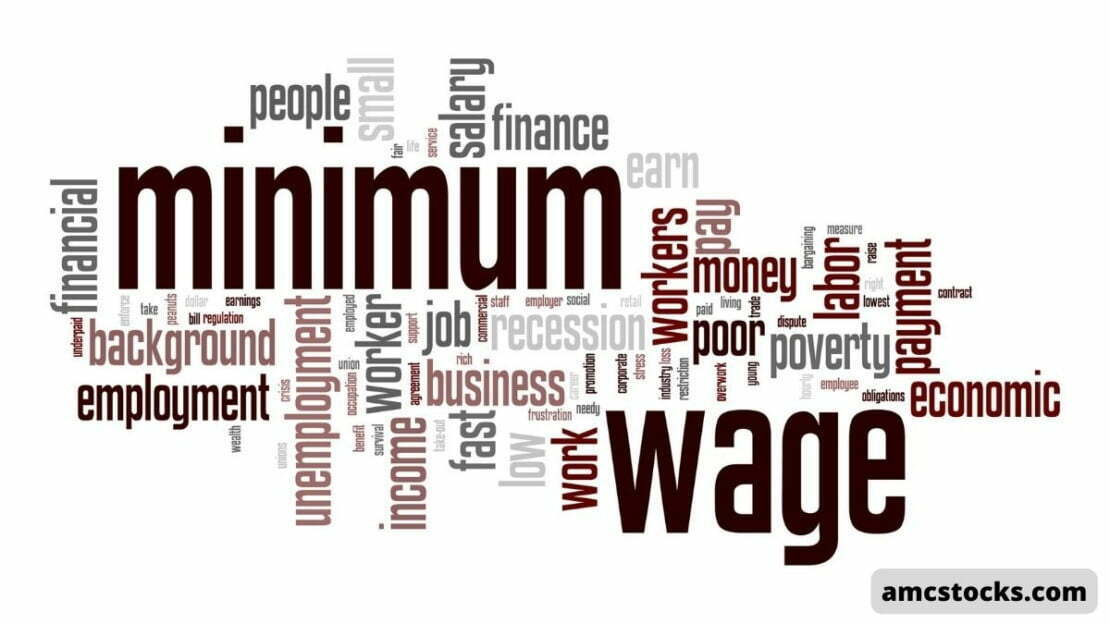What’s the minimum wage in California?
The current minimum wage in California is $15.00/hour for employers with 26 or more employees, and $14.00/hour for employers with 25 or less employees. Some cities and counties have higher minimum wages than the state’s rate, such as UC Berkeley which maintains a list of City and County minimum wages in California.”
You might have read about the California minimum wage increase in the news lately. As of January 1st, the minimum wage is $15 per hour. This is applicable to any business that provides employees with health care, regardless of size. The change was implemented to comply with California’s Assembly Bill 1035. This is a state labor law that requires employers to pay employees the state minimum wage. The new law applies to all California employers, regardless of size or number of employees.
The minimum wage is a strategy that California and other municipalities use to address income inequality, poverty, and wage stagnation. minimum wage rates are set by the state, but some municipalities have minimum wage rates that are higher than the state’s. On January 1, 2020, California’s minimum wage will be $13.00 per hour. In comparison, Santa Monica, which is one of the most progressive cities in the United States, has a minimum wage rate of $15.00 per hour.
amc california minimum wage federal minimum wage administrative press releases west hollywood international compensation developments gavin newsom minimum wage professional publications requirements santa monica challenging experienced health care businesses compliance department emeryville employment exemptions industrial industries local
The minimum wage is set to increase by $1 per hour on January 1, 2022. Here are seven things you need to know about the new law.
1: What Is The California Minimum Wage?
The Minimum Wage is $15.00 per hour. The minimum wage is the lowest amount that an employer can pay you for an hour of work. California has a higher minimum wage than most other states in the U.S. The minimum wage in California is set according to a schedule determined by the federal government. In California, the minimum wage is set by the state.
4: What are the Effects of Increasing the Minimum Wage?
economists have argued that increasing the minimum wage to $15.00 per hour would have a number of positive effects on the economy, including increased spending by low-income earners and decreased reliance on government assistance programs. Others argue that a higher minimum wage will lead to job loss and reduced hours for low-wage workers. The overall effect of increasing the minimum wage is still under debate, but there is evidence that it can help reduce poverty and inequality in certain areas of the country.
2: How Do I Calculate My Paycheck?
As a Californian, you are entitled to a minimum wage of $15.00 per hour, effective January 1, 2022. To calculate your paycheck according to the new minimum wage, first find your hourly rate of pay by dividing your total pay in a workweek by the number of hours worked.
Next, add on any applicable overtime pay (if you worked over 40 hours in that week), and finally subtract any income taxes that you may owe (assuming you are filing as an individual). Finally, round this figure up to the nearest dollar.
For example, if you earn $10 per hour and work 40 hours in a workweek, your paycheck would be $240 ($10 x 8 = $80 + $40 = $120). If you have federal taxes withheld from your paycheck (which most workers do), then the remaining amount would be rounded down to the nearest dollar ($240 – $120 = $140).

3: Will I Be Able To Afford My Mortgage If The California Minimum Wage Increases?
Minimum wage in California has increased to $10.50 per hour as of January 1, 2017. This increase will have a significant impact on the ability of low-income workers to afford their mortgages. For example, a single person earning $10.50 per hour will now be able to afford a median-priced home in California, compared to $11,880 before the minimum wage increase. However, this does not mean that all low-income workers will be able to afford a home outright with this increase – even with two full-time jobs. In addition, many borrowers who currently qualify for affordable housing programs may no longer qualify if their monthly income exceeds certain thresholds.
4: What Are My Options For Raising The California Minimum Wage?
Minimum wage in California is currently $10.50 an hour, however, it will increase to $11.00 an hour on January 1, 2020. There are a few ways that an employee can raise the minimum wage in California. Employees may qualify for the minimum wage exemption which allows employees who earn less than $15,000 annually to not have their income taxed. Additionally, employees may also qualify for the low-wage worker classification which allows employees who earn less than $20 per hour to not have their income taxed.
Finally, employees may also qualify for the youth minimum wage which increases with each year of employment and is currently set at $9.00 per hour. Unfortunately, none of these exemptions or classifications apply if the employee works more than 40 hours per week or more than 120 hours per month.
5: Should I Take A Raise Or Delay My Minimum Wage Increase?
Should you take a raise or delay your minimum wage increase? Salary increases are always a difficult decision to make, but there are pros and cons to each option. A raise can be beneficial in the short-term, as it can increase your salary and improve your quality of life. However, if you’re not prepared for the increased costs associated with a higher salary, delaying the increase may be wiser. Over time, if your salary remains static or declines due to inflation, you’ll end up losing money by taking the raise now rather than later.
In addition to financial considerations, there are also moral considerations to consider when making this decision. Delaying an increase may give you more time to adjust and find new employment if your current job doesn’t pay enough – something that could be very difficult if your wage is frozen or reduced due to budget constraints. Ultimately, it’s important to weigh all of these factors carefully before deciding what course of action is best for you.
6: How Will The Increase Affect People On Government Benefits?
The increase to the minimum wage per hour will have a significant impact on people who receive government benefits, such as food stamps and Medicaid. The federal government provides a minimum income for these programs, so an increase in the minimum wage will result in an increase in benefits for recipients.
7: What’s Next For The Future Of The California Minimumwage?

In January of this year, the California state minimum wage increased from $8 an hour to $9.00 an hour. This increase was a direct result of statewide voter approval of Proposition 2 in November 2016.
Since its implementation, there has been much debate surrounding the future of the minimum wage in California. On one hand, many employers have voiced concern over the potential costs associated with an increase in minimum wage; on the other hand, many low-income earners see it as their only source of income above poverty level.
While it is still early days for the future of the minimum wage, it will be important to watch how Prop 2 and subsequent increases play out over time. If things go as planned, by 2024 every worker in California will earn at least $10 an hour, which would be a significant step forward for workers and families across the state.
A minimum wage is the lowest wage a worker can be paid per hour, with exceptions for small businesses and certain industries. The federal minimum wage is $7.25. Many municipalities, such as West Hollywood and Santa Monica, have been raising the minimum wage to $15.
California Governor Gavin Newsom, who is running for President, announced that he would raise the minimum wage to $15 for all adults in the state.minimum wage federal minimum wage administrative press releases west hollywood international compensation developments gavin newsom minimum wage professional publications requirements santa monica challenging experienced health care businesses compliance department emeryville employment exemptions industrial industries localitiescloud info localities
Conclusion
As of January 1, 2022, the minimum wage in California will increase to $15 per hour. In some cases, employers can raise their pay as well. This change could affect millions of people across the state and lead to a debate over whether or not it should be increased again in the future.



